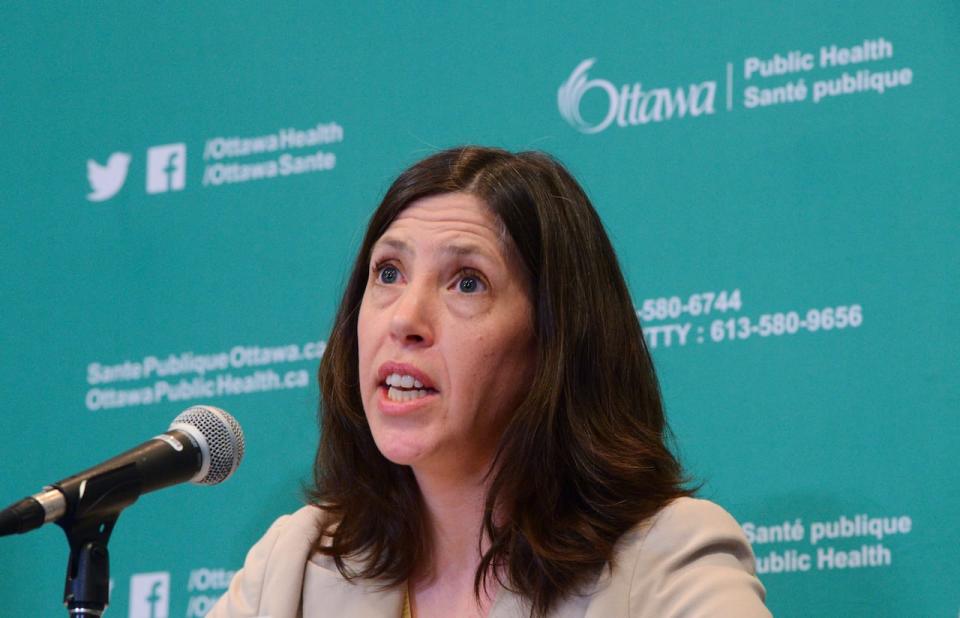Ottawa Public Health seeking ways to continue wastewater testing
Ottawa Public Health wants to collaborate with local partners to look for ways to continue wastewater monitoring after the province cuts funding to the program next month.
At its meeting this week, the city's board of health passed a motion directing Medical Officer of Health Dr. Vera Etches to write to provincial and federal partners to find ways to continue the wastewater testing work that's being done at the University of Ottawa.
Earlier this month, Ontario announced that by the end of July, it will scrap the program for sampling wastewater to monitor levels of COVID-19 in the population. The program began in 2020 and is funded through the Ministry of Environment, Conservation and Parks.
But researchers in Ottawa have been using wastewater monitoring to check for other infectious diseases including respiratory syncytial virus (RSV), influenza, MPox and measles.
Robert Delatolla, a professor and wastewater researcher at the U of O, said hospitals including CHEO use the data to prepare for surges in infectious diseases and initiate preventative measures.
Delatolla said once the program is transferred to the Public Health Agency of Canada (PHAC), data will only be reported monthly. He said that won't allow hospitals to plan accordingly.
"The frequency of testing seems below a threshold of appropriate quality of data, and the reporting frequency ... seems too long for people like CHEO, for the hospitals, for Ottawa Public Health to really find use in that data," he said.
After this story was published, a PHAC spokesperson emailed CBC to say it hasn't yet confirmed how often data will be reported until it confirms its test sites. They also said samples are currently taken twice a week on average.
PHAC first told CBC that in Ontario, the agency currently performs testing at four wastewater treatment plants in Toronto as part of the federal monitoring program.
The current expansion plans in Ontario aim to establish federal testing in four additional cities. PHAC said it's working with other stakeholders to determine testing locations and implement testing ahead of the next influenza season.
Hospitals rely on data for planning
Mari Teitelbaum, a vice-president with CHEO, said the Ottawa children's hospital can use the data from wastewater monitoring to better help manage its resources.
"We were upping staffing in the emergency departments, how many isolation beds we needed, things like that. So this data has been incredibly important, and three to five days' lead time can make a big difference," she said.
Etches said the cost of wastewater monitoring can range from $370,000 to maintain the sampling seven days a week and report five days a week, to about $230,000 to sample and report three days a week.
"I think we need to look at all options to maintain this valuable tool if the Public Health Agency of Canada's approach isn't going to meet our needs," she said.

In an email to CBC, a spokesperson for the Ministry of Environment, Conservation and Parks said the federal government is expanding its wastewater program in Ontario. To avoid duplication, the province said it's working to support that expansion while winding down its own wastewater surveillance initiative.
"We will work with the federal government to propose sampling sites that provide quality data for public health across the province," the statement said.
Wastewater researchers in other cities, including at the University of Waterloo, have also voiced their concerns about the provincial program coming to an end.
Delatolla said he's hoping PHAC will step in and continue funding the work that's being done at his lab at the U of O.
"If the Public Health Agency of Canada is willing to invest money, then I think the appropriate route is exactly what they're advocating for, which is to invest the money to continue what's already happening here, as opposed to translating that into their system," he said.

 Yahoo News
Yahoo News 
